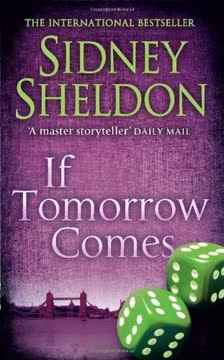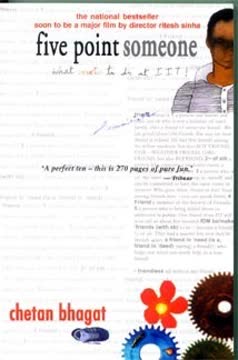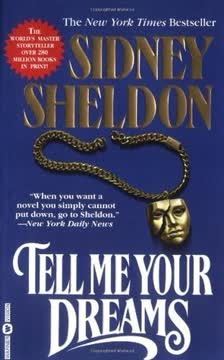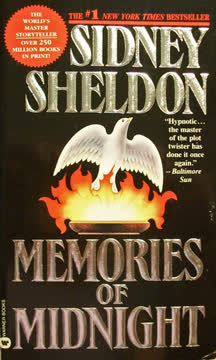Plot Summary
A Mother's Final Goodbye
In New Orleans, Doris Whitney, overwhelmed by despair due to a fraudulent scheme, makes a final call to her daughter, Tracy, in Philadelphia. They discuss everyday matters, but Doris conceals her true intentions. After the call, Doris takes her own life, leaving Tracy unaware of the tragedy that will soon unravel her world.
Tracy's Life Shattered
Tracy Whitney, a vibrant young woman engaged to Charles Stanhope III, is living an idyllic life until she receives a devastating call from the New Orleans police. Her mother, Doris, has committed suicide, driven to despair by Joe Romano's fraudulent scheme. Tracy rushes to New Orleans, determined to uncover the truth and seek justice for her mother.
A Desperate Plan Unfolds
Determined to clear her mother's name, Tracy confronts Joe Romano, demanding he confess to his crimes. The confrontation turns violent, and in a moment of panic, Tracy accidentally shoots Romano. She flees but is soon arrested at the airport, accused of attempted murder and theft, setting the stage for her legal nightmare.
Trapped in a Nightmare
Tracy's trial is a travesty, orchestrated by corrupt lawyer Perry Pope and Judge Henry Lawrence, ensuring her conviction. Her fiancé, Charles, abandons her, adding to her heartbreak. Tracy is sentenced to fifteen years in a Louisiana prison, her life shattered as she faces a grim future behind bars.
A New Life Behind Bars
In prison, Tracy encounters a brutal world where survival depends on alliances. Assaulted by her cellmates, she learns the unwritten rules of prison life. Despite the challenges, Tracy's spirit remains unbroken, and she resolves to survive and seek revenge on those who wronged her.
The Art of Survival
Befriending Ernestine Littlechap, a powerful inmate, Tracy gains protection and begins to understand the prison's social dynamics. Her determination to escape grows as she dreams of freedom and retribution against those who destroyed her life, setting the stage for her daring escape attempt.
A Daring Escape Attempt
Tracy seizes an opportunity to work outside the prison, caring for the warden's daughter. She plans her escape with Ernestine's help, but a twist of fate forces her to save the warden's daughter from drowning. This act of heroism earns her a pardon, offering a second chance at life.
A Daring Heist Unfolds
Tracy Whitney and Jeff Stevens execute an audacious heist to steal a valuable diamond from the Nederlands Diamond-Cutting Factory in Amsterdam. Using disguises and a clever ruse, they swap the real diamond with a fake, leaving authorities baffled. Their flawless execution marks the pinnacle of their criminal careers.
Tracy's Feverish Ordeal
After the heist, Tracy falls gravely ill, jeopardizing their escape. Jeff, showing unexpected tenderness, nurses her back to health, deepening their relationship. Despite the danger, Jeff's care ensures Tracy's recovery, strengthening their bond and setting the stage for a new chapter in their lives.
A New Life Beckons
With the diamond heist behind them, Tracy and Jeff dream of a life free from crime. Their love grows, and they decide to marry and start anew, leaving Amsterdam and their old lives behind. The promise of a fresh start and shared future beckons them toward happiness.
The Final Confrontation
Daniel Cooper, an obsessed investigator, trails Tracy across Europe, determined to catch her. Despite his efforts, Tracy and Jeff outsmart him at every turn. Cooper's fixation becomes his undoing, leading to his resignation and failure, while Tracy and Jeff evade capture, leaving Cooper to grapple with his demons.
A Love Beyond Crime
As they prepare to leave their criminal pasts behind, Tracy and Jeff's love solidifies. Their partnership transcends the thrill of the con, rooted in a deep, genuine connection. Their decision to marry marks a new chapter, where love and trust replace deceit and danger, promising a future filled with happiness.
Characters
Doris Whitney
Doris Whitney's life ends in tragedy due to a fraudulent scheme, setting off a chain of events that shatters her daughter Tracy's world. Her suicide becomes the catalyst for Tracy's quest for justice and redemption.
Tracy Whitney
Tracy is a master of disguise and deception, using her intelligence and charm to outwit adversaries. Her journey from a wronged woman seeking justice to a skilled con artist is marked by determination and resourcefulness, with a moral compass targeting only those deserving retribution.
Charles Stanhope III
Charles is Tracy's wealthy fiancé, who deserts her when she is accused of crimes. His betrayal adds to Tracy's heartbreak and fuels her resolve to rebuild her life without him.
Joe Romano
Romano is responsible for Doris Whitney's downfall. His fraudulent actions lead to Doris's suicide and Tracy's wrongful imprisonment, making him a primary target of Tracy's quest for justice.
Perry Pope
Pope is Tracy's court-appointed lawyer, secretly working against her. His betrayal ensures Tracy's conviction, highlighting the corruption she faces.
Judge Henry Lawrence
Lawrence is the judge who sentences Tracy to prison, part of the corrupt system conspiring against her. His role in Tracy's downfall makes him a target of her vengeance.
Ernestine Littlechap
Ernestine is a formidable presence in prison, offering Tracy protection and guidance. Her friendship is crucial to Tracy's survival and escape plans.
Anthony Orsatti
Orsatti is the crime boss behind the scheme that destroys Doris Whitney. His influence and power make him a formidable adversary in Tracy's quest for justice.
Amy Brannigan
Amy is the warden's daughter, whom Tracy saves from drowning. Her rescue leads to Tracy's pardon, offering a glimmer of hope and redemption.
Warden Brannigan
The warden of the prison where Tracy is held, Brannigan is a fair and compassionate figure who ultimately plays a role in Tracy's release.
Jeff Stevens
Jeff is a charismatic con artist with a penchant for elaborate schemes. His relationship with Tracy evolves from rivalry to partnership, revealing his depth of character and commitment to a new life with her.
Daniel Cooper
Cooper is driven by a personal vendetta against Tracy, stemming from his troubled past. His fixation on capturing her becomes an all-consuming obsession, leading to his downfall.
Gunther Hartog
Gunther is a cultured figure who provides Tracy with opportunities for high-stakes heists. Despite his involvement in crime, his loyalty to Tracy is unwavering.
Maximilian Pierpont
Pierpont is a rich businessman, known for predatory tactics. He becomes a target for Tracy and Jeff, symbolizing greed and corruption.
Plot Devices
Corruption and Betrayal
The narrative is driven by corruption within the legal system, with key figures conspiring against Tracy. Their betrayal highlights the theme of injustice and fuels Tracy's quest for revenge.
Survival and Redemption
Tracy's story is one of survival against overwhelming odds. Her determination to clear her mother's name and seek justice for herself is central to the plot, culminating in her daring escape attempt and eventual redemption.
Prison as a Microcosm
The prison setting serves as a microcosm of society, with its own rules and power dynamics. Tracy's experiences highlight themes of power, survival, and the struggle for justice in an unjust world.
Elaborate Heists and Deceptions
The story is propelled by intricate heists and cons, showcasing Tracy and Jeff's ingenuity and skill. These plot devices create tension and excitement, as the characters navigate the challenges and risks of their criminal endeavors.
Redemption and New Beginnings
The narrative explores the possibility of redemption and the desire for a fresh start. Tracy and Jeff's decision to leave their criminal pasts reflects their longing for a life free from danger and deceit.
Obsession and Downfall
Daniel Cooper's relentless pursuit of Tracy serves as a cautionary tale about the dangers of obsession. His inability to let go of his vendetta leads to his professional and personal downfall.
Analysis
"If Tomorrow Comes" by Sidney Sheldon is a gripping tale of justice, redemption, and the transformative power of love. The narrative explores the impact of systemic corruption and betrayal, as Tracy Whitney navigates a world that has wronged her. Her journey from despair to hope is marked by resilience and cunning, as she seeks to clear her mother's name and find her own redemption. The story delves into the complexities of human relationships, highlighting the importance of trust and loyalty. Tracy's partnership with Jeff Stevens evolves from a shared criminal endeavor to a deep, genuine connection, underscoring the theme of love as a redemptive force. The novel also serves as a cautionary tale about the dangers of obsession, as seen through Daniel Cooper's relentless pursuit of Tracy. Ultimately, "If Tomorrow Comes" is a testament to the human spirit's capacity for survival and transformation, offering readers a thrilling and thought-provoking journey.
Last updated:
FAQ
Synopsis & Basic Details
What is If Tomorrow Comes about?
- Naive Woman Wronged: The story follows Tracy Whitney, a bright and successful young woman whose idyllic life is shattered when she is framed for a crime she didn't commit, leading to her wrongful imprisonment.
- Quest for Vengeance: Driven by a fierce desire for justice and revenge against the powerful individuals who orchestrated her downfall and caused her mother's death, Tracy transforms from an innocent victim into a cunning and resourceful con artist.
- High-Stakes Global Schemes: The narrative chronicles Tracy's elaborate schemes and daring heists across Europe, as she meticulously targets her enemies and other unscrupulous figures, often partnering with the equally clever Jeff Stevens, navigating a world of danger, deception, and unexpected alliances.
Why should I read If Tomorrow Comes?
- Masterful Pacing & Suspense: Sidney Sheldon's signature fast-paced narrative and relentless plot twists keep readers on the edge of their seats, with every chapter ending in a cliffhanger that compels you to read "just one more."
- Compelling Character Transformation: Witness Tracy Whitney's remarkable evolution from a naive, heartbroken woman to an intelligent, resilient, and morally complex anti-heroine, making her journey of survival and retribution deeply engaging.
- Intricate Heists & Global Intrigue: The novel is packed with ingenious cons, elaborate disguises, and high-stakes operations set against glamorous international backdrops, offering a thrilling escape into a world of clever criminals and their targets.
What is the background of If Tomorrow Comes?
- 1980s Technological Undercurrents: The story is set against the backdrop of the mid-1980s, leveraging emerging computer technology in banking for Tracy's initial work and later for her sophisticated financial cons, reflecting the era's growing digital landscape.
- Exploration of Systemic Corruption: The narrative deeply embeds itself in the corrupt underbelly of the legal and criminal systems, particularly in New Orleans, showcasing how powerful figures like Anthony Orsatti and his associates can manipulate justice and destroy innocent lives.
- Cultural Commentary on Wealth & Morality: The novel subtly critiques the moral decay often found among the ultra-rich and powerful, presenting Tracy's targets as greedy, dishonest, or exploitative individuals who, despite their social standing, are "deserving" of her brand of justice.
What are the most memorable quotes in If Tomorrow Comes?
- "If tomorrow comes.": This recurring phrase, first uttered by Tracy in her darkest moment in solitary confinement, becomes her mantra for survival and vengeance, symbolizing her unwavering determination to live and exact retribution.
- "You can't con people unless they're greedy to begin with. W. C. Fields had it right. You can't cheat an honest man.": Uncle Willie's cynical wisdom, passed down to Jeff Stevens, encapsulates a core theme of the novel, justifying the protagonists' targets as inherently flawed and thus deserving of being conned.
- "I'm not a criminal. I came here looking for a job.": Tracy's defiant declaration to Conrad Morgan highlights her internal struggle and the external pressures that force her into a life of crime, emphasizing her initial moral compass despite her circumstances.
What writing style, narrative choices, and literary techniques does Sidney Sheldon use?
- Propulsive, Plot-Driven Narrative: Sheldon employs a direct, unadorned prose style that prioritizes relentless plot advancement and high-octane action over deep literary introspection, ensuring a page-turning experience.
- Omniscient, Shifting Point of View: The narrative frequently shifts between characters' perspectives, offering insights into their thoughts and motivations, and building suspense by revealing information to the reader that characters themselves may not possess, such as Daniel Cooper's traumatic past.
- Master of the Cliffhanger: Each chapter, and often individual scenes, concludes with a dramatic twist or unresolved tension, a hallmark of Sheldon's style designed to compel continuous reading and maintain a high level of suspense.
Hidden Details & Subtle Connections
What are some minor details that add significant meaning?
- Doris's Red Negligee: Doris Whitney chooses a "bright red negligee to wear so that the blood would not show," a chilling detail that not only foreshadows her suicide but also reveals her desperate attempt to maintain dignity and control even in her final, tragic act. This subtle choice underscores her pride and the depth of her despair, which Tracy later inherits as a fierce determination.
- The Pawn Shop Owner's Insight: When Tracy attempts to buy a gun and gives a fake address, the pawn shop owner immediately corrects her, stating, "There is no Thirty-twenty Dowman Road. That would be in the middle of the river. We'll make it Fifty-twenty." This seemingly minor interaction highlights the pervasive knowledge of the criminal underworld in New Orleans, subtly hinting at the interconnectedness and danger of the world Tracy is about to enter, and her initial naivete within it.
- The "Indecent" Happiness: Early in the novel, Tracy reflects, "It's indecent for anyone to be this happy." This fleeting thought, before her world collapses, serves as a subtle premonition of the tragedy to come, suggesting that such unadulterated joy is unsustainable in the harsh reality of the world, foreshadowing her rapid descent into despair and later, a life of calculated risk.
What are some subtle foreshadowing and callbacks?
- Tracy's Fear of Water: Early in the book, a flashback reveals Tracy's childhood terror of water after her father playfully, but traumatically, dropped her into the ocean. This deep-seated phobia is subtly recalled when she faces the "cold, forbidding-looking lake" at the prison, making her heroic leap to save Amy a profound act of overcoming personal trauma, not just a selfless deed.
- The Zoo Animals in Cages: During a childhood flashback, Tracy asks her father if the zoo animals "hate being locked up," and he replies, "No, Tracy. They have a wonderful life. They're taken care of and fed, and their enemies can't get them." This seemingly innocent memory serves as a poignant callback to Tracy's own imprisonment, where she feels like a caged animal, highlighting the stark contrast between her father's naive view of captivity and her brutal reality.
- "If Tomorrow Comes" as a Mantra: The phrase "If tomorrow comes" first appears as Tracy's desperate thought in solitary confinement, a vow to survive and seek revenge. It subtly recurs throughout the narrative, evolving from a symbol of grim determination to a hopeful affirmation of her future with Jeff, marking her psychological journey from victim to survivor to one who embraces a new life.
What are some unexpected character connections?
- Conrad Morgan's Link to Uncle Willie: It's revealed that Conrad Morgan, the sophisticated jeweler who introduces Tracy to high-stakes theft, "had once worked for Uncle Willie," Jeff Stevens's mentor in the carnival world. This unexpected connection subtly links Tracy and Jeff's criminal paths even before they become partners, suggesting a shared lineage within a specific, almost familial, underworld of con artists.
- The Shared "Con Artist" Philosophy: While Tracy and Jeff initially appear as rivals, their individual backstories reveal a surprisingly similar philosophy towards their targets. Jeff's Uncle Willie taught him, "You can't con people unless they're greedy to begin with," a sentiment echoed by Tracy's later credo that she "was careful never to hurt the innocent. The people who jumped at her swindles were greedy or immoral, or both." This shared moral code, developed independently, forms an unexpected bond.
- Daniel Cooper's Traumatic Past: Daniel Cooper's obsessive pursuit of Tracy is unexpectedly rooted in his own childhood trauma: witnessing his mother's infidelity and then murdering her, framing another man. This hidden detail connects his relentless "justice" to a deeply personal, pathological need for atonement and control, making his character far more complex than a simple antagonist.
Who are the most significant supporting characters?
- Otto Schmidt: Tracy's loyal former foreman, Otto Schmidt, stands out as a beacon of unwavering support and kindness in her darkest hour, visiting her in prison and handling her mother's funeral. His simple, honest loyalty contrasts sharply with Charles Stanhope's betrayal and the systemic corruption Tracy faces, highlighting the rare presence of genuine human decency.
- Amy Brannigan: The warden's young daughter, Amy, serves as a pivotal catalyst for Tracy's pardon, but also represents a profound connection to Tracy's lost innocence and motherhood. Her innocent affection and Tracy's instinctive act of saving her life reveal a lingering humanity within Tracy, preventing her complete descent into hardened criminality and offering a path to redemption.
- Ernestine Littlechap: Beyond being a powerful inmate and ally, Ernestine Littlechap acts as Tracy's pragmatic mentor in the brutal realities of prison life. Her tough love and street-smart wisdom ("You gotta fight, fuck, or hit the fence") are crucial for Tracy's survival, and her unexpected maternal protectiveness ("I ain't come across many decent things in my life. You're one of 'em") reveals a deeper layer to her character.
Psychological, Emotional, & Relational Analysis
What are some unspoken motivations of the characters?
- Daniel Cooper's Atonement: Daniel Cooper's relentless, almost fanatical pursuit of Tracy Whitney is driven by an unspoken, deeply buried motivation: a desperate need for atonement for his own childhood murder of his mother and the subsequent framing of an innocent man. He projects his guilt and desire for punishment onto Tracy, seeing her as a "whore" and a "sinner" whose capture will somehow cleanse his own soul, as evidenced by his prayers for her suffering to be his "redemption."
- Ernestine's Vicarious Vengeance: While Ernestine explicitly states she helps Tracy for her "class" and to "give Big Bertha a kick in the ass," an unspoken motivation is her vicarious experience of freedom and vengeance through Tracy. Having been trapped in the system herself, Ernestine sees Tracy's daring escapes and retribution as a way to fight back against the injustices she and other inmates have suffered, living out her own unfulfilled desires for defiance.
- Jeff's Search for Authenticity: Jeff Stevens, despite his charming con-artist persona, is implicitly motivated by a search for authenticity and meaning beyond the superficial wealth and corruption of his adopted family. His disdain for the "dressed-up carnies" at the Pilgrim Club and his desire for a "stable homelife and children" with Louise, even before he discovers her deceit, reveal a yearning for a genuine connection and a life of substance, which he ultimately finds with Tracy.
What psychological complexities do the characters exhibit?
- Tracy's Identity Dissolution and Reconstruction: Tracy undergoes a profound psychological transformation, initially feeling her "identity was slipping away" in prison, becoming "nameless, faceless." She then consciously reconstructs multiple identities through disguises and accents, leading to a complex internal debate about who she truly is ("I'm not that woman anymore. I'm living a masquerade"). This journey explores the psychological impact of trauma and the adaptive nature of identity.
- Charles Stanhope's Moral Cowardice: Charles Stanhope III exhibits a psychological complexity rooted in his deep-seated fear of scandal and his superficial adherence to social standing. His immediate abandonment of Tracy, prioritizing his family's "ethical image" over love and loyalty, reveals a profound moral cowardice and an inability to confront unpleasant realities, making him a stark contrast to Tracy's burgeoning resilience.
- Daniel Cooper's Psychosexual Obsession: Daniel Cooper's character is marked by a disturbing psychosexual complexity, where his pursuit of Tracy becomes intertwined with his repressed trauma and sexual fantasies. His actions, such as rubbing Tracy's underwear against his cheek and fantasizing about her "naked body... flagellated," reveal a deeply disturbed psyche that conflates punishment with sexual gratification, making his "justice" a perversion of morality.
What are the major emotional turning points?
- Charles's Betrayal and Abandonment: The phone call where Charles Stanhope III coldly abandons Tracy, prioritizing his family's reputation over her innocence and their unborn child, marks a devastating emotional turning point. This act of betrayal shatters Tracy's last vestiges of hope and love, transforming her despair into a "cold fury" and fueling her singular drive for vengeance against all who wronged her.
- Amy Brannigan's Rescue: Tracy's instinctive decision to save Amy from drowning, despite her own deep-seated fear of water and the fact that it jeopardizes her meticulously planned escape, is a pivotal emotional moment. This selfless act, born of compassion, allows Tracy to reclaim a part of her lost humanity and ultimately leads to her pardon, offering a path to redemption beyond pure revenge.
- The First Successful Con (Bellamy Heist): Tracy's successful execution of the Lois Bellamy jewel heist, where she outwits the police with a clever disguise, marks a significant emotional shift. Her initial terror gives way to "shaking, uncontrollable laughter" and a feeling of being "daring and clever and invincible," signifying her embrace of her new identity and the exhilarating thrill of the con.
How do relationship dynamics evolve?
- Tracy and Charles: From Idyllic Love to Bitter Contempt: Their relationship begins as a fairy-tale romance, with Tracy feeling "like a princess" and Charles seemingly adoring. However, Charles's immediate and cold abandonment of Tracy upon her arrest irrevocably shatters this bond, transforming Tracy's love into "black despair" and ultimately, profound hatred, as she realizes he "never really knew" her.
- Tracy and Ernestine: From Victim/Protector to Mutual Respect: Initially, Ernestine Littlechap acts as Tracy's protector in the brutal prison environment, a "bull-dyke" who claims Tracy as her "wife." Over time, as Tracy demonstrates her own strength and cunning, their dynamic evolves into one of genuine mutual respect and friendship, with Ernestine becoming a loyal confidante and accomplice in Tracy's escape and early cons.
- Tracy and Jeff: From Rivals to Romantic Partners: Their relationship starts as a competitive rivalry, with Jeff repeatedly outwitting Tracy in their early cons, leading to Tracy's intense frustration and desire to "happily slaughter Jeff Stevens." However, Jeff's unexpected act of nursing Tracy back to health after the diamond heist, and his subsequent proposal, transforms their dynamic into a deep, loving partnership built on mutual admiration, shared experiences, and a desire for a legitimate future together.
Interpretation & Debate
Which parts of the story remain ambiguous or open-ended?
- The Long-Term Fate of the "Villains": While Tracy successfully orchestrates the downfall of Joe Romano, Perry Pope, Judge Henry Lawrence, and Anthony Orsatti, the ultimate, long-term consequences for some of them remain somewhat ambiguous. For instance, while Orsatti's empire is threatened by the New Jersey Family, his complete demise isn't explicitly detailed, leaving room to wonder about the true extent of his downfall.
- The Ethical Line of Tracy's "Justice": The novel consistently portrays Tracy's targets as morally corrupt or greedy, justifying her actions as a form of balancing the scales. However, the story leaves open the debate of whether Tracy is truly a "hero" or simply a more sympathetic criminal. Her enjoyment of the "thrill of each daring escapade" and "living on the cutting edge of danger" suggests a motivation beyond pure justice, blurring the lines of her moral standing.
- The Future of Tracy and Jeff's "Retirement": While Tracy and Jeff decide to "go straight" and retire from their life of crime, the final scene with Maximilian Pierpont introduces an element of ambiguity. Pierpont's presence on their flight, and his reputation as a "target," leaves the reader to ponder whether their retirement will truly last, or if the allure of the game will prove too strong to resist.
What are some debatable, controversial scenes or moments in If Tomorrow Comes?
- The Prison Rape Scene: The graphic depiction of Tracy's gang rape by her cellmates is a highly controversial and disturbing moment. While it serves as a brutal catalyst for her transformation and hardening, its explicit nature and the question of its necessity for character development can be debated, with some arguing it's gratuitous while others see it as a stark portrayal of prison realities.
- Tracy's Decision to Leave Amy: When Tracy throws the ball to distract Amy and then runs, leaving the child alone near the lake, it presents a morally complex and debatable moment. While her escape is paramount for her survival and future plans, her momentary abandonment of a child who adores her, even if she immediately returns to save her, raises questions about her priorities and the sacrifices she's willing to make.
- The Nature of Tracy's "Revenge": Tracy's elaborate schemes against her initial tormentors (Romano, Pope, Lawrence, Orsatti) are presented as justified retribution. However, the methods she employs, which involve deception, financial ruin, and even imprisonment (as with Judge Lawrence), can be debated as to whether they constitute true "justice" or simply a sophisticated form of personal vengeance, blurring the ethical boundaries of her actions.
If Tomorrow Comes Ending Explained: How It Ends & What It Means
- A New Beginning, Not an End to the Game: The novel concludes with Tracy and Jeff Stevens, now married, deciding to "retire" from their life of crime, having amassed significant wealth and found genuine love. They plan a future of travel and legitimate pursuits, like Jeff's archaeology digs, symbolizing a desire for a stable, crime-free existence. This ending signifies their personal redemption and the triumph of their bond over their past.
- The Lingering Allure of the Con: The very last line of the book, where Tracy finds herself seated next to Maximilian Pierpont, a notorious "target" whom Jeff had previously intended to con, introduces a subtle but powerful ambiguity. This final encounter suggests that while they may intend to go straight, the thrill of the game and the presence of tempting opportunities may forever be a part of their lives, hinting that their "retirement" might be more of a temporary hiatus or a constant test of their resolve.
- Love as the Ultimate Reward: Ultimately, the ending emphasizes that Tracy's true victory is not just her freedom or wealth, but the profound love and partnership she finds with Jeff. Their decision to marry and build a life together, based on mutual respect and understanding, signifies that their emotional connection is the most valuable outcome of their tumultuous journey, transcending the material gains and dangers of their criminal past.
Review Summary
If Tomorrow Comes received mostly positive reviews, with readers praising its captivating plot, clever cons, and strong female protagonist Tracy Whitney. Many found it entertaining and fast-paced, enjoying Tracy's transformation and adventures. Some criticized it as unrealistic or simplistic, but most appreciated Sheldon's storytelling. Readers often mentioned it fondly as a memorable book from their youth. The novel's themes of revenge and ingenuity resonated with many, though some felt it lacked depth compared to more literary works.
Similar Books
Download PDF
Download EPUB
.epub digital book format is ideal for reading ebooks on phones, tablets, and e-readers.















